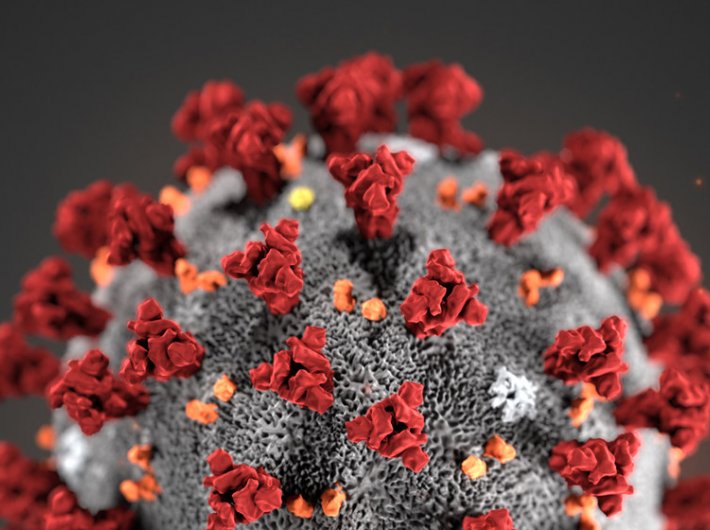National Recovery Rate improves to 62.72%, Case Fatality continues to dip further to 2.43%
While India remains one of the most Covid-19-affected countries, its recovery rate continues to improve with the total number of patients who have returned home touching 7,24,577.
India’s recovery rate has further improved to 62.72%. Its Case Fatality Rate is among the lowest, 2.43%, which is consistently falling.
“Sustained, proactive, progressive and evidence-based strategies for effective surveillance, testing through expanded effective country-wide network of labs, coupled with Standard Treatment Protocol for ensuring effective clinical treatment of COVID19 cases have resulted in a progressive increase of 24,491 in COVID-19 recoveries during the last 24 hours,” an official bulletin said Tuesday evening.
The gap between the number of recovered cases and active cases has increased to 3,22,048. There are 4,02,529 active cases and all are under medical supervision.
In the 24 hours to Tuesday evening, 3,33,395 samples were tested. Cumulatively 1,43,81,303 samples have been tested in the country. This has been possible through ever expanding diagnostic lab network of 1274 labs, including 892 labs in the government sector and 382 private labs.
19 state/UTs conduct more than 140 tests/day/million
The “Test, Track, Treat” strategy encapsulates the holistic framework for management of Covid-19. It has been implemented through various measures by the state/UT governments. While states/UTs have substantially expanded their testing network, they have also undertaken measures to facilitate widespread testing by people at large. As a result the national average of tests/day/million has substantially jumped to 180, as on date.
The WHO in its Guidance Note on “Public Health Criteria to Adjust Public Health and Social Measures in the Context of Covid-19” has advised comprehensive surveillance for suspected Covid-19 cases. The WHO has advised that a country needs 140 tests/day/ million population.
There are currently 19 state/UTs which are conducting more tests than that. Goa is testing most at 1,333 tests per day per million.
The centre and ICMR have continually advised the state/UT governments to improve the number of tests conducted. Through the coordinated efforts, India’s testing per million (TPM) has increased to 10,421. This has helped in early detection and timely and effective clinical management of Covid-19 cases.
In tandem with increased testing, the Confirmation Rate or Positivity Rate for India is continuously reducing and currently stands at 8.07%. There are 30 State/UTs in India which have lower Positivity Rate than the India average. This indicates that Centre-led initiative of increased testing is working in yielding positive results.
Sero-prevalence study reveals widespread prevalence
Nearly one in four people (23.48%, to be precise) in Delhi has shown the prevalence of IgG antibodies, according to a sero-surveillance study in the capital.
The study also indicates that a large number of infected persons remain asymptomatic. Commissioned by the Ministry of Health and Family Welfare (MoHFW), this study was carried out by the National Centre for Disease Control (NCDC) in collaboration with the Delhi government, from June 27 to July 10.
For all the 11 districts of Delhi, survey teams were formed. Blood samples were collected from selected individuals after taking written informed consent and then their sera were tested for IgG antibodies and infection using COVID KAVACH ELISA approved by the ICMR. It is one of the largest sero-prevalence studies conducted in the country using the ELISA testing.
As many as 21,387 samples were collected as per lab standards and were tested. The tests help in identification of presence of antibodies in the general population. The test performed is not a diagnostic test but only provides information about past infection due to SARSCoV-2 in individuals who test positive.
Antibody testing repeatedly done over time, i.e., sero-surveillance, generates important evidence for assessing the spread of the pandemic from time to time.
The results of the sero-prevalence study show that on an average, across Delhi, the prevalence of IgG antibodies is 23.48 %. The study also indicates that a large number of infected persons remain asymptomatic.
Implications:
1. Nearly six months into the epidemic, only 23.48% of the people are affected in Delhi, which has several pockets of dense population. This can be attributed to the proactive efforts taken by the Government to prevent the spread of infection including prompt lockdown, effective containment and surveillance measures, including contact tracing and tracking, as well as citizen’s compliance to COVID Appropriate Behaviours.
2. However, a significant proportion of the population is still vulnerable. Therefore, the containment measures need to continue with the same rigour. Non-pharmacological interventions such as physical distancing, use of face mask/cover, hand hygiene, cough etiquette and avoidance of crowded places etc., must be followed strictly.
